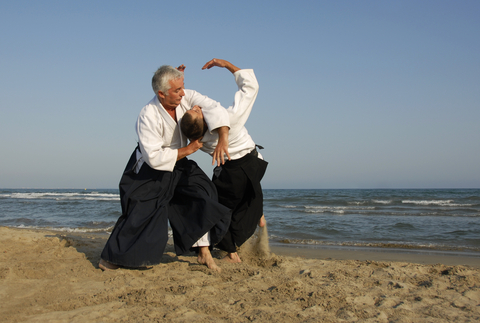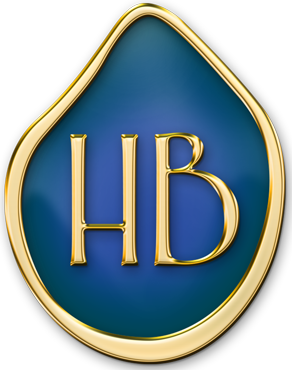
If we are so powerful, why do we sometimes feel so powerless? Why do we forget that we have the power of the stars and galaxies, of the Earth itself, in our bellies and lungs, in our bones and hearts?
We live in a culture that surrounds us with reminders of our powerlessness. We are bombarded with messages about what we don’t have, what we must have in order to be happy, successful, fulfilled. We live in an environment seething with not-enoughness. It pulls us out of our bodies, out of ourselves, and leaves us stranded on the far shore of striving to be smarter, richer, thinner, cleaner, more evolved, more innovative, more something.
When we believe we are not enough, we separate from ourselves. We disconnect from our bodies, our feelings, our sacredness, our souls — from the very sources of our power and nourishment. And, because our relationship with ourselves is the foundation for all of our relationships, we disconnect from the earth, the natural world, and the sacred life all around us.
It’s no wonder, then, that we lose touch with the power we embodied so naturally and effortlessly when we were first born, when we were very young children.
I don’t want to sentimentalize childhood. The limitless qualities of our souls — love, freedom, abundance power — are vibrantly present in us when we are very young, but we have yet to develop the capacity to use these qualities effectively and skillfully. We have yet to learn how these infinite forces function, in a world that is defined by boundaries and limits. It’s what childhood is for — to learn, to grow, to experiment in the playground of incarnation.
My granddaughter, who’s just turned three, has been playing with power and the limits of power more consciously, in the past few months. She’s figuring out how power works. Her mum asks her if she wants a snack, and she roars NO! at the top of her lungs — just because she can. Then she laughs uproariously, filled with gleeful delight at her own capacity to choose, and climbs up onto the kitchen chair to devour her milk and carrot sticks.
Her relationship with power remains an exploratory one — free of guilt, shame, blame, and the rest of the gremlins that beset us as we grow up and take on the shapes imposed upon us by our world.
Our families, schools and other social and educational institutions make sure we understand and obey the agreed-upon norms of our society. It’s an uneasy — and I hope, temporary — but necessary accommodation. We can’t go around yelling NO! to things we actually want, because if we do, they will no longer be available to us.
We can’t even yell NO! to things we don’t want, because we live in a world of relationships, and relationships require empathy, kindness, courtesy, and yes, tact, give-and-take, the willingness to be flexible and open to other points of view.
So, in training to be social beings, we learn both the helpful and the not-so-helpful accommodations of civil society. We learn to listen and be receptive to others, but we also learn to dissemble, to tell polite white lies, to hide our true feelings and pretend to like things we don’t. We hold ourselves back from voicing our true desires. We turn away from that which we truly long for.
Eventually, when we’ve done this for long enough, we grow distant from our desires until we no longer know what we feel, what we want, or how to find our way back home to who we really are. We numb out. We fill the void left by our unfulfilled desires with things, people, and experiences that are poor substitutes for our own soul’s essence. We give over, give away or throw away our power until we no longer have access to it.
The resulting feelings of powerlessness take us even further away from our wholeness, from the essential wholeness and power of the world.
And so the cycle is perpetuated. It’s that disconnection from power that gives rise to mechanisms of control, abuse of authority, and social, economic, and religious structures that serve a small minority at the expense of everyone else.
We experience abuses of power — in our homes and families, classrooms, financial institutions, social and economic systems. We experience the ways in which power is unequally distributed and misused in our workplaces, in our systems of governance and justice.
We react to this growing body of experience and understanding in a variety of ways. Some of us shrink away from the responsibility of owning and wielding power because we are afraid of the corrupting influence of power. Or we become mired in anger, blame, impotence or beliefs about power and powerlessness that keep us from accessing the depths of our own personal power, and using it in service to wholeness through focused, inspired, collaborative action.
Eventually, we forget that power is a quality of soul, that it is within us and cannot be taken away from us, no matter what. We identify ourselves and others as victims, we carve up our world into ideological categories — oppressors, victims, oppressed. And we contribute to the distortions that come from conflating the uses and abuses of power with its essence, which is the activity of love.
Power is a quality of your soul. On a soul level, you have access to all the powers of wholeness — in this world and in the subtle energy worlds. When I say that the powers of the stars and galaxies, of the Earth and sun, are in you, I mean this quite literally. You can access these powers in your own energy body, once you develop the consciousness, skill and capacity to do so.
Power wielded in service to love, in harmony with wholeness, is among the most creative forces in the universe.

